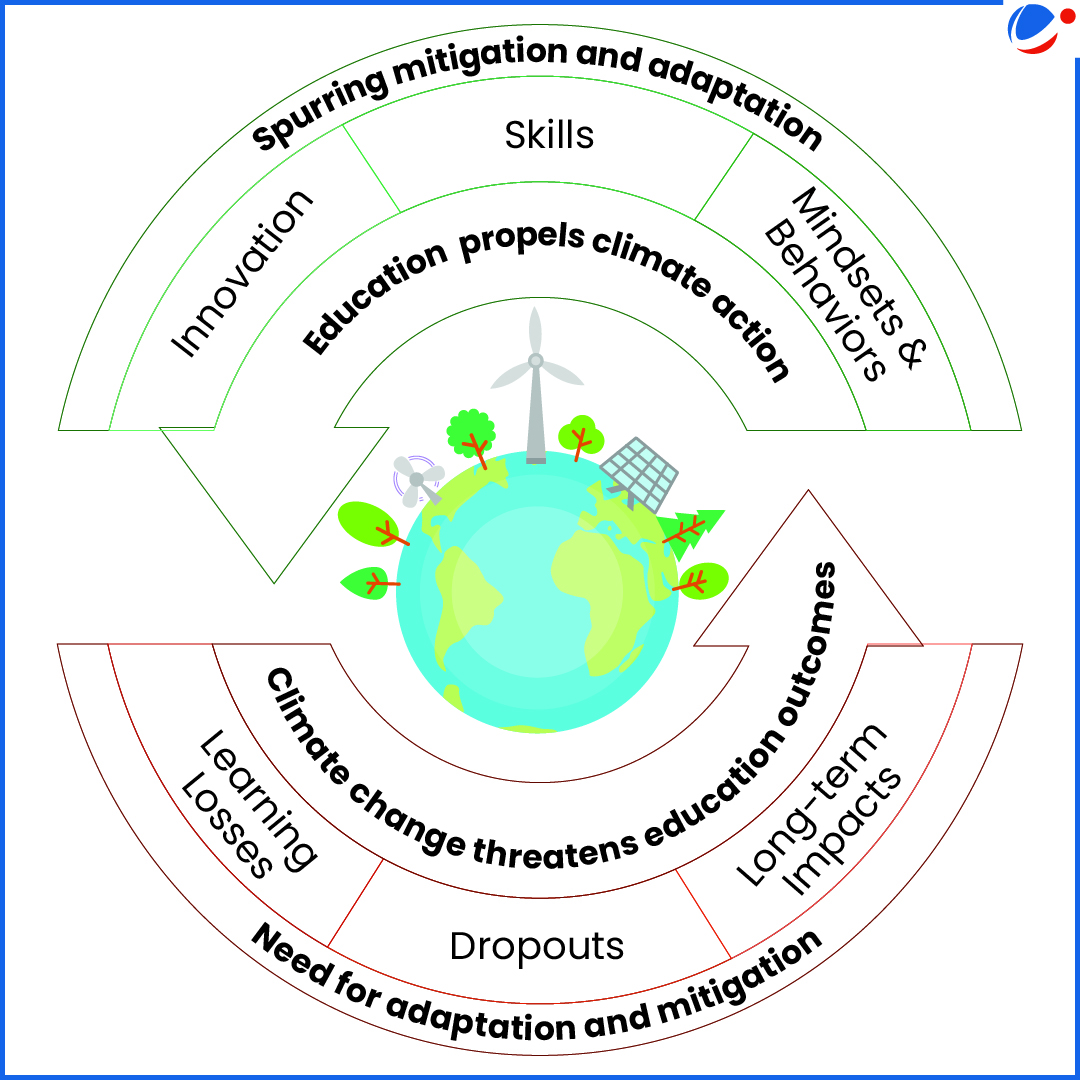The report states that climate change induced heat and extreme weather events are significantly disrupting learning and emphasizes that education system can empower, equip, and skill young people for climate mitigation and adaptation.
Key Highlights of the Report
- Impact of climate change on schooling and learning: Countries lost on average 11 days of instruction per year in affected schools due to climate-related school closures, with higher impact in low-income countries.
- Information gap on climate awareness: Climate change awareness is still at only about 65% in low- and middle-income countries.
- Need of skilling/ re-skilling/ up-skilling: Global green transitions would require skilled workers for an estimated 100 million new jobs, up-skilled workers for most existing jobs, and re-skilled workers for another 78 million jobs which will disappear.
- Education can help with climate action today: In India, climate-related outreach to children not only increased their pro-climate behavior but also increased the pro-climate behavior of parents by nearly 13%.

Recommendations for the Government
- Harness school education for pro-climate behavior-change by investing in foundational skills and STEM education, delivering well-designed climate education, etc.
- Harness tertiary education for green skilling and innovation by fostering student adaptability through strong foundations, flexible pathways, and information flows.
- Protect education systems by making them more adaptable and resilient to a changing climate.





